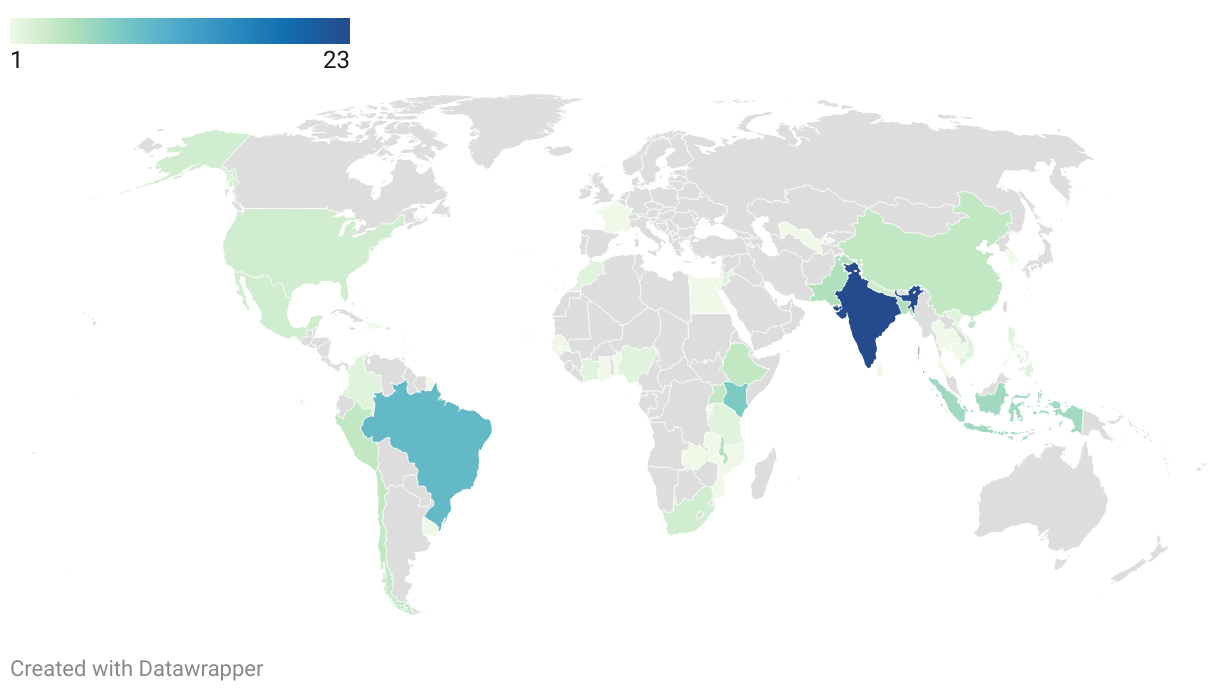Money is pouring into the Philippines in the wake of the devastation of Typhoon Haiyan (Yolanda). But, to state the blatantly obvious, it’s not just the amount of assistance that matters, it’s how it’s spent. But here’s a question: will anyone actually be able to identify how that assistance is spent?
As my colleague Vijaya Ramachandran painstakingly documented in the case of Haiti, a lack of transparency in relief efforts following a natural disaster means that (1) a recipient government cannot manage aid flows; (2) coordination among donors is hampered leading to duplicative programs as well as gaps; (3) there is little accountability from those providing services, leading to wasted money; (4) lessons learned are rarely shared; and (5) taxpayers and individual donors don’t know if their money is being spent effectively. And that’s just for starters.
Vijaya and Owen Barder recently posted a plea for aid agencies and humanitarian organizations responding to Typhoon Haiyan to “publish details of their planned and actual spending and activities, in real time, in an open, machine-readable format.” Seconded! And, scientifically judging by the comments on their post, much of the Filipino community emphatically agrees.
So, will the US government (and its contractors and subcontractors) publish foreign assistance spending data?
Well, there’s a website to do so: the Foreign Assistance Dashboard, which is the USG’s mechanism for unified reporting to the International Aid Transparency Initiative.
However, the data available on the Dashboard right now is limited, with many agencies not yet reporting. But more importantly in the instance of Typhoon Haiyan, real-time, project-level data isn’t available and won’t be anytime soon (this is not to discount the real difficulties in getting 22 agencies with different information systems and incentives to report to the Dashboard).
The Senate Foreign Relations Committee took a step towards improving USG transparency on foreign assistance spending on November 14th. The Foreign Aid Transparency and Accountability Act (FATAA, S. 1271) passed unanimously out of Committee. Senators Rubio (R-FL) and Cardin (D-MD) and co-sponsors Coons (D-DE), Isakson (R-GA), Johanns (R-NE), Kirk (R-IL), Tester (D-MT), and Warren (D-MA) deserve kudos for their support of much-needed transparency in US foreign aid. Representatives Poe (R-TX) and Connolly (D-VA) have been long-suffering champions of the bill (HR 2638) in the House, where it has yet to make an appearance in the House Foreign Affairs Committee this year. With very few legislative days left in 2013, it’s unlikely that we’ll see the bill pass this year.
But given the real lives and real money at stake in the Philippines, should Congress push forward on FATAA this session? Well, here’s the thing, even if it is signed into law, FATAA wouldn’t actually require US agencies to publish the kind of details in real time that would help us avoid many of the problems caused by a lack of transparency in Haiti earthquake assistance.
So here’s my (serious) proposal for an amendment to FATAA that would take us forward further and faster: Strike it all and substitute to the effect of, “All agencies shall be responsible for reporting to the International Aid Transparency Initiative Registry on all foreign assistance activities, including those of their contractors and sub-contractors. Reporting shall meet the full IATI standard in machine readable format on a quarterly basis.” This would mean that anyone—including the government in the Philippines, others looking to coordinate aid, and US taxpayers—would be able to find financial, transaction, project level, results, and geocoded data. The US has been an IATI signatory since November 2011 but has been called “unambitious” when it comes to the types of data it plans on publishing (see here for Publish What You Fund and OXFAM on the United States’ rather lackluster implementation schedule).
Barring that amendment, FATAA is still a useful bill; it provides a much-needed bolstering of the Dashboard. The bill could pass next session given its history of relatively strong bipartisan support (last year’s version passed the House 390-0)—perhaps even in time to help make much of the USG aid to the Philippines somewhat more transparent, if not ideally so. To read more on the bill, check out MFAN’s statement and a post from George Ingram at Brookings here.
And I hope that we’ll hear from the Administration soon about how they plan to make sure US relief efforts in the Philippines are as transparent as possible—from USAID, DOD, and other agencies, but also USG contractors and subcontractors. Reporting to IATI on Haiyan assistance doesn’t require an act of Congress and would be of tremendous value in making sure USG and other assistance is as effective as possible.
Thanks to Will McKitterick for his contributions to this blog.
Disclaimer
CGD blog posts reflect the views of the authors, drawing on prior research and experience in their areas of expertise. CGD is a nonpartisan, independent organization and does not take institutional positions.





